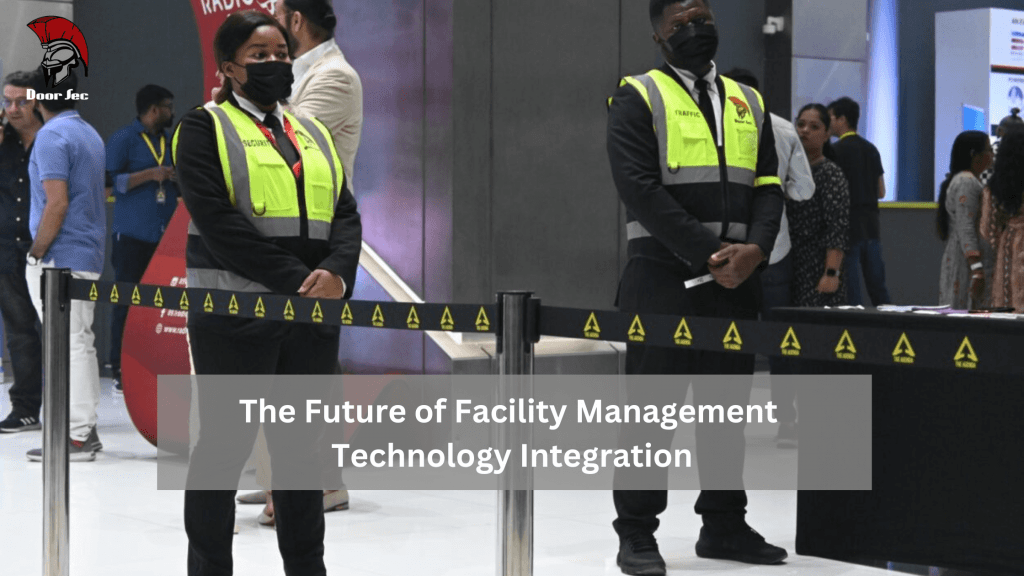Facility Management Service in Dubai has always been at the forefront of innovation, adapting to the city’s dynamic landscape and technological advancements. As Dubai continues to grow as a global hub for business and innovation, the future of Facility Management services is intricately linked with the seamless integration of technology. This blog post explores the exciting prospects and transformative impact of technology on Facility Management in Dubai, emphasizing the key role played by Facility Management services in embracing and implementing these advancements.
Current State of Facility Management in Dubai:
Before delving into the future, it’s essential to understand the current state of Facility Management services in Dubai. The city, with its iconic skyscrapers, bustling commercial spaces, and world-class infrastructure, demands a high level of efficiency and precision in managing facilities. Facility Management service in Dubai currently encompass a broad range of responsibilities, including maintenance, security, cleaning, and space management. However, with the rapid pace of technological evolution, the landscape is poised for significant transformation.
The Technological Revolution in Facility Management:
Internet of Things (IoT) Integration:
One of the most impactful trends in the future of Facility Management is the integration of IoT. Smart sensors and connected devices will enable real-time monitoring of various facility aspects, from HVAC systems to occupancy levels. This data-driven approach enhances predictive maintenance, improves energy efficiency, and contributes to a proactive Facility Management strategy.
Artificial Intelligence (AI) and Machine Learning (ML):
AI and ML are revolutionizing how Facility Management services operate. Predictive analytics powered by AI can forecast equipment failures, optimize maintenance schedules, and minimize downtime. Machine learning algorithms enhance the efficiency of resource allocation, space utilization, and overall operational processes.
Smart Building Solutions:
Dubai’s skyline is adorned with smart buildings, and the future of Facility Management will see an increased adoption of intelligent building solutions. These may include automated lighting systems, climate control, and integrated security measures. Facility Management service in Dubai will play a crucial role in ensuring the seamless operation and optimization of these sophisticated systems.
Augmented Reality (AR) and Virtual Reality (VR):
AR and VR technologies are poised to transform Facility Management training and operations. Maintenance personnel can use AR to access real-time information, visualize equipment layouts, and receive virtual assistance for complex tasks. VR can facilitate immersive training experiences, improving the skills and knowledge of Facility Management staff.
Blockchain for Security and Transparency:
Security is paramount in Facility Management, and blockchain technology is emerging as a key player in enhancing security and transparency. Secure databases powered by blockchain can store critical information related to facility access, maintenance records, and vendor interactions, ensuring data integrity and reducing the risk of fraud.
Benefits of Technology Integration in Facility Management:
Efficiency and Cost Savings:
The integration of technology streamlines processes, leading to increased efficiency and cost savings. Predictive maintenance, energy optimization, and automated workflows contribute to a more resource-efficient Facility Management ecosystem.
Enhanced User Experience:
Smart technologies contribute to an enhanced user experience within facilities. From intelligent lighting that adapts to user preferences to smart space management systems that optimize layouts, Facility Management services in Dubai are positioned to create environments that prioritize user comfort and satisfaction.
Proactive Maintenance:
The shift towards predictive maintenance, powered by IoT and AI, allows Facility Management services to address issues before they escalate. This proactive approach minimizes downtime, extends the lifespan of equipment, and reduces overall maintenance costs.
Data-Driven Decision-Making:
Technology integration provides Dubai Facility Management services with a wealth of data. Analyzing this data enables informed decision-making, allowing for strategic planning, resource optimization, and continuous improvement.
Sustainability and Energy Efficiency:
Smart building solutions contribute to sustainability goals by optimizing energy consumption. Facility Management services can leverage technology to monitor and control energy usage, implement eco-friendly practices, and contribute to Dubai’s commitment to environmental responsibility.
Challenges and Considerations:
While the future of Facility Management in Dubai is undoubtedly shaped by technology, it is essential to address potential challenges and considerations:
Cybersecurity:
As everything gets more connected, there’s a bigger chance of cyber threats. Facility Management services must prioritize robust cybersecurity measures to protect sensitive data and ensure the secure operation of smart systems.
Skill Development:
The adoption of advanced technologies requires a skilled workforce. Facility Management service in Dubai must invest in ongoing training and skill development to ensure that personnel can effectively operate and maintain the technology-driven infrastructure.
Interoperability:
The integration of various technologies necessitates interoperability. Facility Management services should carefully select solutions that can seamlessly communicate and integrate to avoid siloed systems.
Regulatory Compliance:
Dubai has stringent regulations related to building safety, environmental standards, and data protection. Facility Management services must navigate and comply with these regulations while implementing technological advancements.
Facility Management Services in Driving Technological Innovation:
Facility Management services in Dubai play a pivotal role in driving technological innovation. By:
Embracing Change:
Forward-thinking Facility Management services actively embrace technological change, staying informed about the latest advancements and exploring opportunities for integration.
Collaborating with Tech Providers:
Collaboration with technology providers is crucial. Facility Management Services can work closely with tech companies to tailor solutions that meet the specific needs of Dubai’s facilities.
Educating Clients and Stakeholders:
Facility Management services act as educators, helping clients and stakeholders understand the benefits of technology integration. Clear communication and education foster collaboration and support for technological initiatives.
Piloting and Implementing New Technologies:
Facility Management services can take the lead in piloting and implementing new technologies. By serving as early adopters, they contribute to shaping the future landscape of Facility Management in Dubai.
Conclusion:
The future of Facility Management in Dubai is undeniably intertwined with technology integration. The city’s commitment to innovation, coupled with the proactive stance of Facility Management services, positions Dubai as a global leader in smart and efficient facility operations. As technology continues to evolve, Facility Management services will play a pivotal role in shaping environments that are not only technologically advanced but also sustainable, efficient, and conducive to the well-being of occupants. By embracing the technological revolution, Facility Management services Dubai are set to redefine the standards of excellence in facility operations, contributing to the city’s reputation as a forward-looking and technologically advanced global hub.

